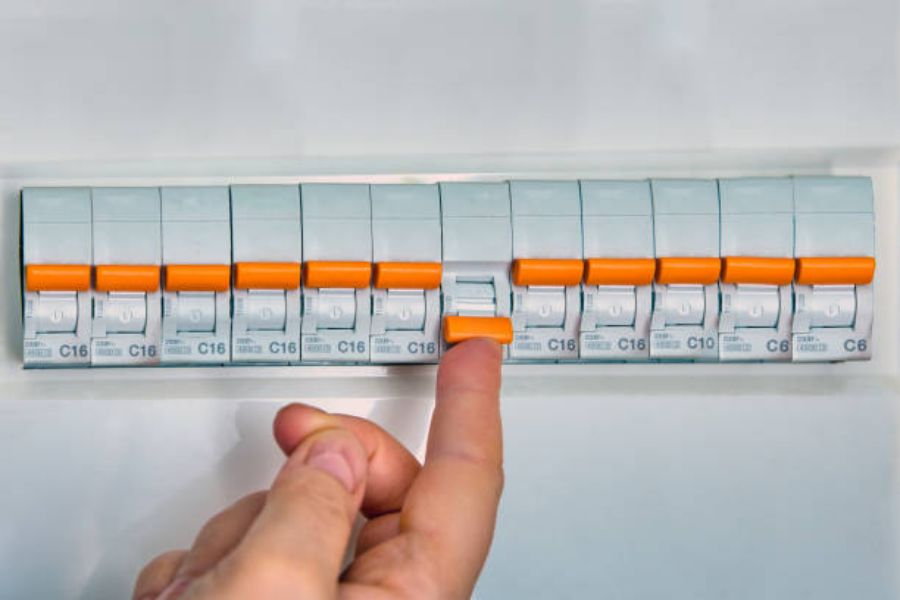Table of Contents

Introduction: Understanding 15 amp circuit breakers
Circuit breakers are critical components in electrical installations, and 15 amp circuit breakers are an essential element in the home or office. They protect electrical circuits from overloads and short circuits by shutting off the power flow when the current exceeds a safe level. This article explains why 15 amp circuit breakers are important and highlights their various aspects.
What are 15 amp circuit breakers?
A 15 amp circuit breaker is an automatic switch that cuts off the electricity when the current exceeds 15 amps. Each circuit breaker is rated according to the maximum current it can handle safely. This ensures that the circuit breaker matches the wiring capacity of the circuit and protects against electrical fires or other hazards related to overloading.
Types of 15 amp circuit breakers
There are many types of circuit breakers, and 15 amp circuit breakers are no exception. Common types include thermal, magnetic, and hybrid circuit breakers. Thermal breakers use a bimetallic strip to detect excess current, while magnetic circuit breakers use an electromagnet. Hybrid circuit breakers use both technologies. Some breakers are designed for specific applications, such as ground fault circuit interrupters (GFCIs) for bathrooms and kitchens or arc fault circuit interrupters (AFCIs) for bedrooms and living spaces.
How do 15 amp circuit breakers work?
When too much current flows through a circuit, the circuit breaker "trips" and interrupts the flow of electricity. This protects the electrical system, devices, and people from harm. After a circuit breaker trips, it must be manually reset to re-establish power. Circuit breakers can also act as switches to turn power on and off manually.
Why are 15 amp circuit breakers important?
15 amp circuit breakers are essential components of electrical safety systems. They prevent electrical fires by shutting off the power when currents exceed safe levels. Overloading electrical circuits beyond their capacity can cause damage to appliances, equipment, and wiring, which can lead to costly repairs. Circuit breakers also protect people from electrical shocks and other hazards associated with electrical malfunction.
Factors to consider when choosing 15 amp circuit breakers
When it comes to selecting circuit breakers, several factors should be considered. The type of circuit breaker required, its current rating, voltage rating, and interrupting capacity are essential considerations. Other factors include the size, number of poles, and installation method of the breaker. The application of the circuit breaker, such as residential or commercial, also plays a significant role.
Installing 15 amp circuit breakers
Installing a 15 amp circuit breaker requires knowledge of electrical systems, wiring, and safety procedures. It is recommended to hire a qualified electrician to install or replace a circuit breaker. Improper installation or selection of a circuit breaker can result in damage to electrical devices or harm to life and property.
Replacing 15 amp circuit breakers
A circuit breaker may need replacement for various reasons, including damage, overuse, or obsolescence. Again, it is best to consult a licensed electrician to diagnose any issues and replace the circuit breaker with the correct type and rating. DIY replacement of circuit breakers is not recommended as it may lead to serious electrical damage or injury.
Maintaining 15 amp circuit breakers
Maintaining circuit breakers is essential to ensure their proper function and prevent malfunctions that may lead to costly repairs or safety hazards. Routine maintenance procedures, such as visual inspections, testing, and cleaning, help detect potential issues and prevent circuit breakers from failure.
Conclusion
15 amp circuit breakers are essential to protect electrical systems and prevent electrical hazards. Selecting the right type of breaker, installing it correctly, and maintaining it properly is crucial for proper functioning. Consulting a licensed electrician for installation, replacement, or maintenance is recommended to ensure safety and proper functioning.
